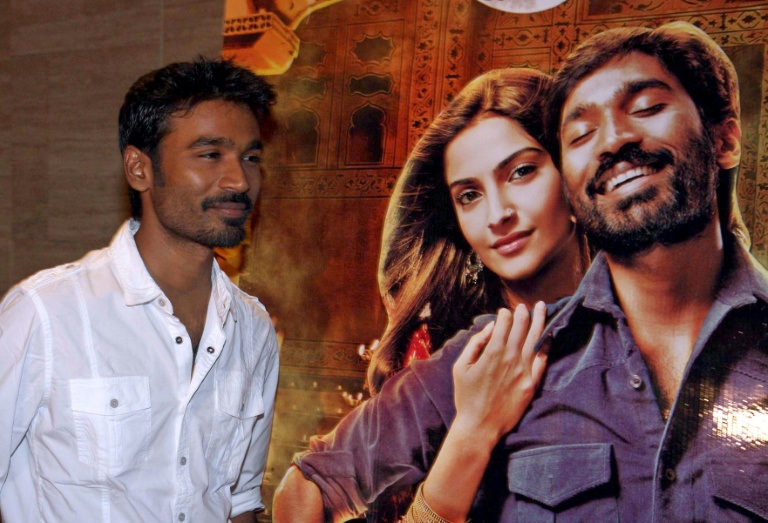Science
Bollywood Faces AI Disruption as Filmmakers Debate Future

Bollywood, known for its vibrant song-and-dance sequences and large production teams, is undergoing a significant transformation due to the rise of artificial intelligence (AI) in filmmaking. The introduction of AI technology has prompted both excitement and concern among industry figures, particularly following the re-release of the 2013 film, “Raanjhanaa”. This version featured an AI-altered ending, shifting the film’s original tragic conclusion to a more optimistic one, igniting a heated debate about the implications for creative integrity.
The controversy surrounding the modified ending sparked outrage from director Aanand L. Rai and lead actor Dhanush. Dhanush expressed his dismay on social media, stating, “This alternate ending has stripped the film of its very soul.” He criticized the decision to proceed with the change despite his objections, arguing that using AI to modify films sets a troubling precedent. Rai echoed this sentiment, asserting that while AI represents the future, it should not alter established works.
In a striking development, just days after the uproar, the entertainment company Collective Artists’ Network announced the production of India’s first fully AI-generated feature film, “Chiranjeevi Hanuman – The Eternal.” Scheduled for release in 2026, this mythological epic aims to blend traditional storytelling with advanced technology, depicting the tales of the Hindu monkey god Hanuman.
The film industry is now divided between those who view AI as a disruptive force that can reduce costs and those who defend the value of human creativity. Filmmaker Vikramaditya Motwane sarcastically remarked on social media, “Who needs writers and directors when it’s ‘Made in AI’?” This sentiment reflects a growing concern that AI could replace essential roles within the industry.
Some filmmakers, however, see the potential for AI to enhance traditional filmmaking rather than replace it. Shakun Batra, known for his emotional dramas, has utilized AI in a five-part short film series. He believes that the ideal future involves a collaboration between technology and human creativity, emphasizing, “I don’t encourage AI as a replacement to human endeavor of expression.”
Veteran director Shekhar Kapur, famous for classics like “Masoom” and “Elizabeth,” remains optimistic about AI’s role in filmmaking. He argues that AI cannot replicate the unpredictability that defines great storytelling. “AI can’t… create great performances on screen,” he stated, suggesting that those who rely on formulaic tropes may find themselves threatened by advancing technology. Kapur views AI as a tool that can democratize the film industry, providing opportunities to individuals who might otherwise lack access.
As the industry evolves, the impact of AI on high-budget films, particularly those reliant on action sequences, is a point of contention. Kapur plans to incorporate AI into his own projects and is even considering establishing an AI-focused film school in Mumbai’s Dharavi slum, aiming to empower independent filmmakers and foster innovation.
The audience’s response will ultimately shape the future of AI in cinema. Rai noted the overwhelming support for the original version of “Raanjhanaa,” highlighting the film’s connection with its viewers. “The way they reacted to AI is much bigger than the way I reacted,” he remarked. As Bollywood navigates this new landscape, the balance between technological advancement and artistic integrity will remain a crucial discussion point for filmmakers and audiences alike.
-

 Education3 months ago
Education3 months agoBrandon University’s Failed $5 Million Project Sparks Oversight Review
-

 Science4 months ago
Science4 months agoMicrosoft Confirms U.S. Law Overrules Canadian Data Sovereignty
-

 Lifestyle3 months ago
Lifestyle3 months agoWinnipeg Celebrates Culinary Creativity During Le Burger Week 2025
-

 Health4 months ago
Health4 months agoMontreal’s Groupe Marcelle Leads Canadian Cosmetic Industry Growth
-

 Science4 months ago
Science4 months agoTech Innovator Amandipp Singh Transforms Hiring for Disabled
-

 Technology3 months ago
Technology3 months agoDragon Ball: Sparking! Zero Launching on Switch and Switch 2 This November
-

 Education3 months ago
Education3 months agoRed River College Launches New Programs to Address Industry Needs
-

 Technology4 months ago
Technology4 months agoGoogle Pixel 10 Pro Fold Specs Unveiled Ahead of Launch
-

 Business3 months ago
Business3 months agoRocket Lab Reports Strong Q2 2025 Revenue Growth and Future Plans
-

 Technology2 months ago
Technology2 months agoDiscord Faces Serious Security Breach Affecting Millions
-

 Education3 months ago
Education3 months agoAlberta Teachers’ Strike: Potential Impacts on Students and Families
-

 Science3 months ago
Science3 months agoChina’s Wukong Spacesuit Sets New Standard for AI in Space
-

 Education3 months ago
Education3 months agoNew SĆIȺNEW̱ SṮEȽIṮḴEȽ Elementary Opens in Langford for 2025/2026 Year
-

 Business4 months ago
Business4 months agoNew Estimates Reveal ChatGPT-5 Energy Use Could Soar
-

 Technology4 months ago
Technology4 months agoWorld of Warcraft Players Buzz Over 19-Quest Bee Challenge
-

 Business3 months ago
Business3 months agoDawson City Residents Rally Around Buy Canadian Movement
-

 Technology2 months ago
Technology2 months agoHuawei MatePad 12X Redefines Tablet Experience for Professionals
-

 Business3 months ago
Business3 months agoBNA Brewing to Open New Bowling Alley in Downtown Penticton
-

 Technology4 months ago
Technology4 months agoFuture Entertainment Launches DDoD with Gameplay Trailer Showcase
-

 Technology4 months ago
Technology4 months agoGlobal Launch of Ragnarok M: Classic Set for September 3, 2025
-

 Technology4 months ago
Technology4 months agoInnovative 140W GaN Travel Adapter Combines Power and Convenience
-

 Science4 months ago
Science4 months agoXi Labs Innovates with New AI Operating System Set for 2025 Launch
-

 Technology4 months ago
Technology4 months agoNew IDR01 Smart Ring Offers Advanced Sports Tracking for $169
-

 Top Stories2 months ago
Top Stories2 months agoBlue Jays Shift José Berríos to Bullpen Ahead of Playoffs










